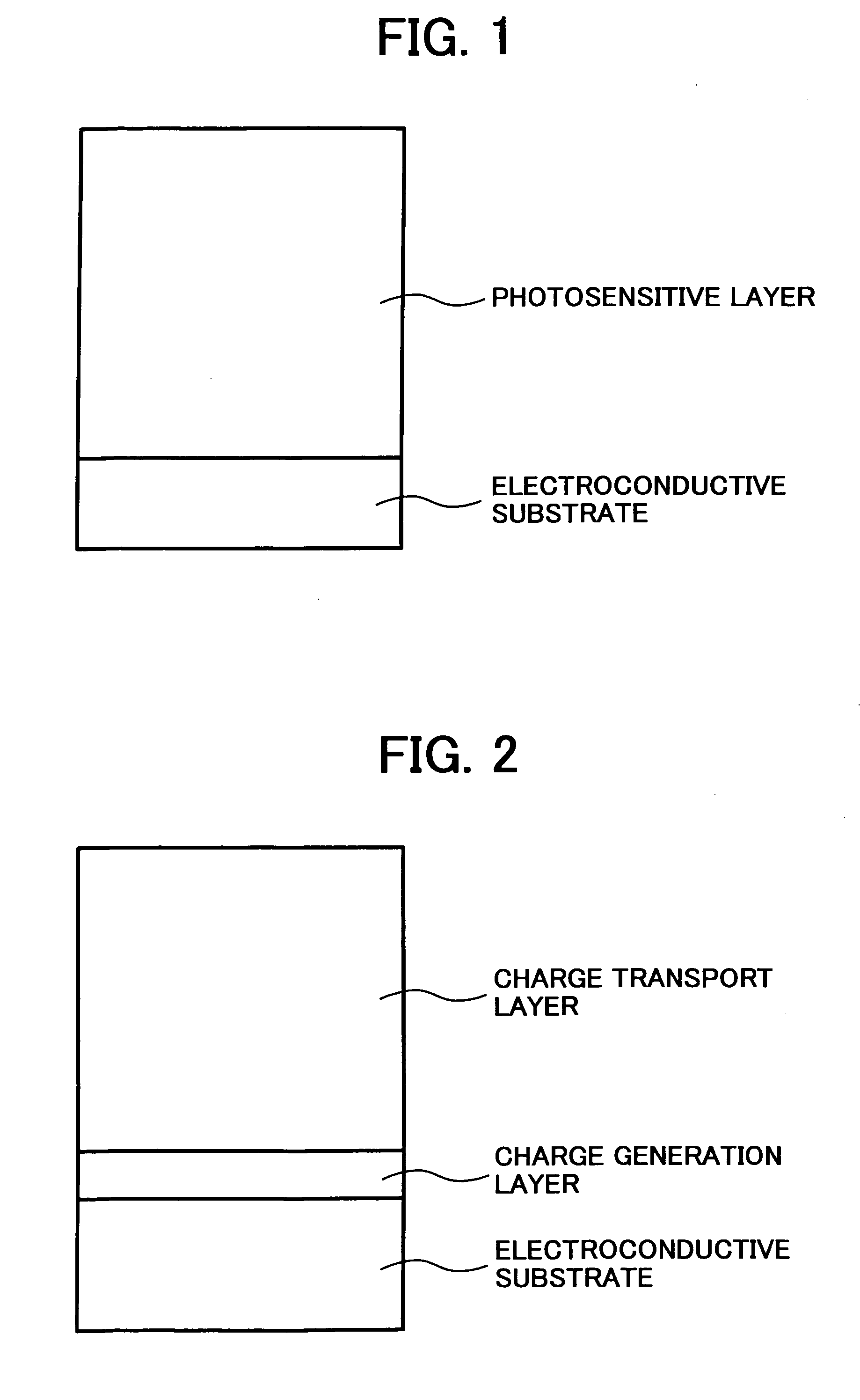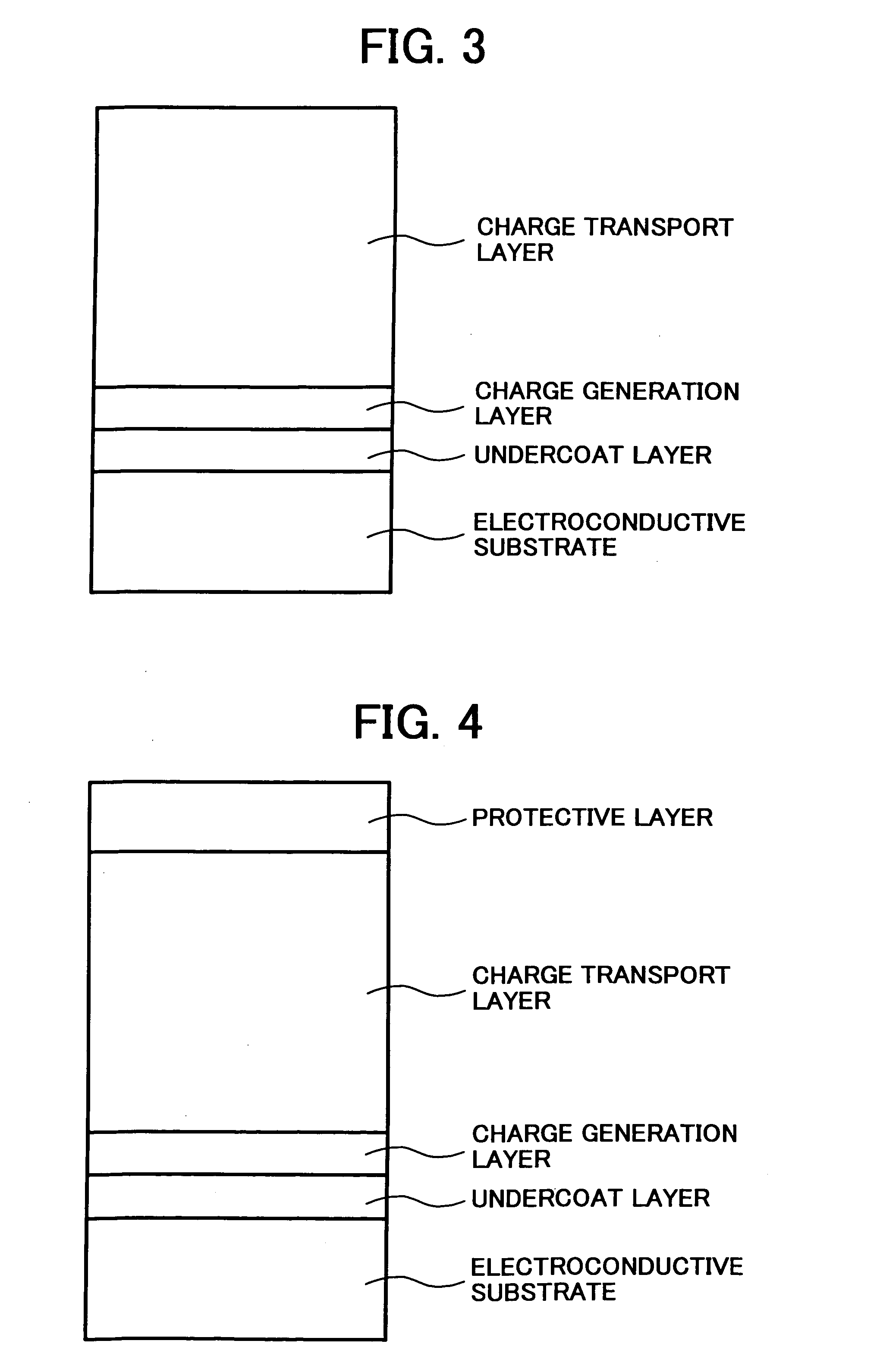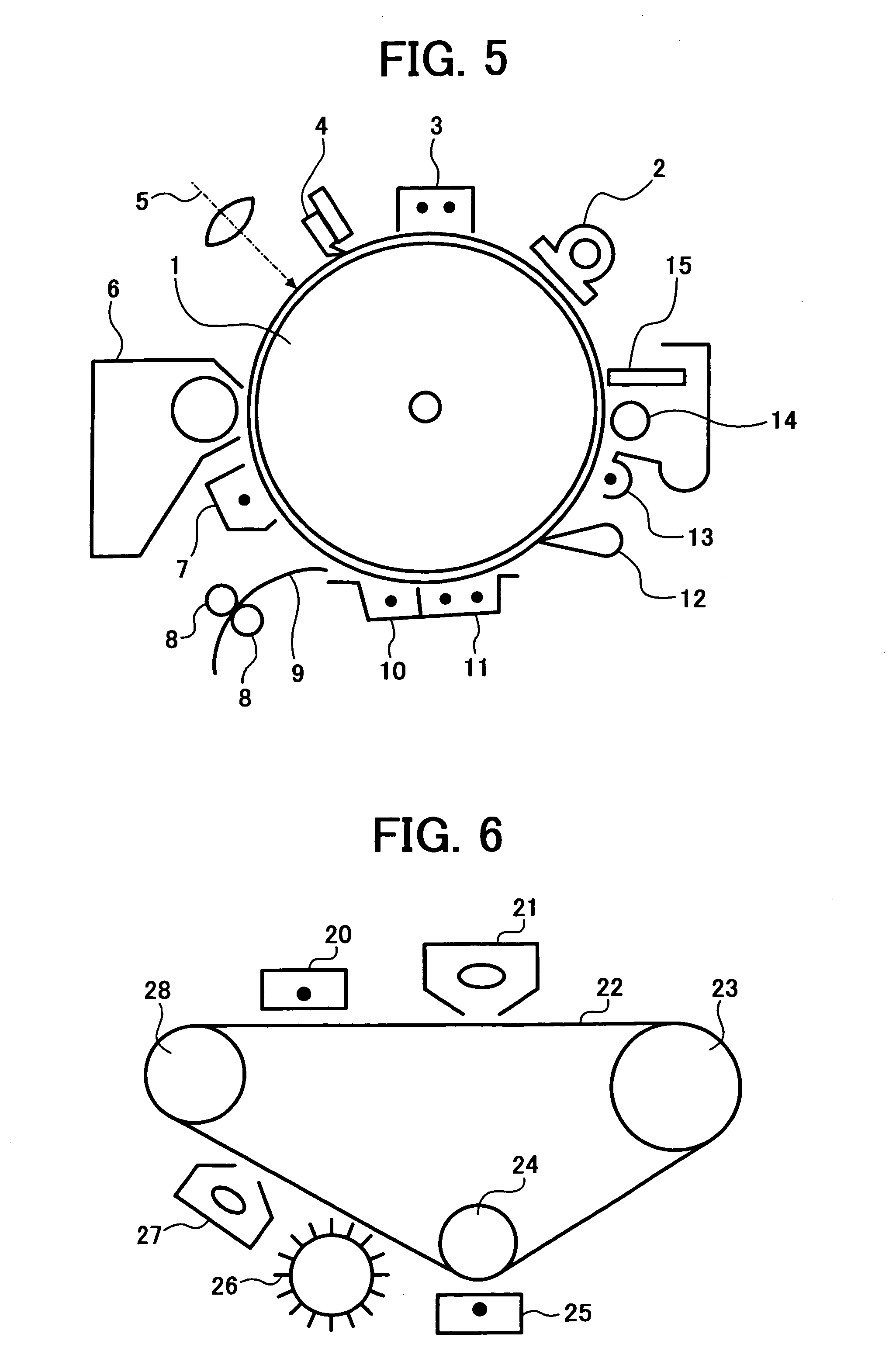Electrophotographic photoreceptor, and image forming method, image forming apparatus and process cartridge therefor using the electrophotographic photoreceptor
a photoreceptor and electrophotography technology, applied in the direction of electrographic process apparatus, instruments, corona discharge, etc., can solve the problems of poor cleaning, increased cost, and inability to properly perform the image forming process, and achieve the effect of stably producing quality images and low surface friction coefficien
- Summary
- Abstract
- Description
- Claims
- Application Information
AI Technical Summary
Benefits of technology
Problems solved by technology
Method used
Image
Examples
example 1
[0168]The following materials were mixed and dispersed in a ball mill for 12 hrs to prepare an undercoat layer coating liquid:
[0169]
Alkyd resin (Bekkolite M6401-50 from15Dainippon Ink & Chemicals, Inc.)Melamine resin (Super Bekkamin G-821-60 from10Dainippon Ink & Chemicals, Inc.)Methyl ethyl ketone150Titanium oxide powder (Tipaque CR-El from90Ishihara Sangyo Kaisha, Ltd.)
[0170]The thus prepared undercoat layer coating liquid was coated on a cylindrical aluminium substrate having a diameter of 90 mm and a length of 392 mm by a dip coating method, and the coated liquid was dried at 130° C. for 20 min to form an undercoat layer having a thickness of 3.5 μm on the substrate.
[0171]Next, the following materials were mixed and dispersed in a ball mill for 48 hrs to prepare a mixture:
[0172]
Polyvinylbutyral resin 4(XYHL from Union Carbide Corp.)Cyclohexanone150Bisazo pigment having the following 10Formula (1):(1)
[0173]Further, 210 parts of cyclohexanone were included in the mixture and the m...
example 2
[0196]The procedures of preparation and evaluation of the electrophotographic photoreceptor in Example 1 were repeated to prepare and evaluate an electrophotographic photoreceptor of Example 2 except for including 55 parts of the PFA dispersion in the resin liquid formed of 16 parts of Bisphenol Z-type polycarbonate resin dissolved in the mixed solvent of 420 parts of tetrahydrofuran and 120 of cyclohexanone to prepare a coating liquid; and insonifying the coating liquid for 10 min to prepare a protective layer coating liquid.
example 3
[0197]The procedures of preparation and evaluation of the electrophotographic photoreceptor in Example 1 were repeated to prepare and evaluate an electrophotographic photoreceptor of Example 3 except for including 300 parts of the PFA dispersion in the resin liquid formed of 16 parts of Bisphenol Z-type polycarbonate resin dissolved in the mixed solvent of 420 parts of tetrahydrofuran and 120 of cyclohexanone to prepare a coating liquid; and insonifying the coating liquid for 10 min to prepare a protective layer coating liquid.
PUM
 Login to View More
Login to View More Abstract
Description
Claims
Application Information
 Login to View More
Login to View More - R&D
- Intellectual Property
- Life Sciences
- Materials
- Tech Scout
- Unparalleled Data Quality
- Higher Quality Content
- 60% Fewer Hallucinations
Browse by: Latest US Patents, China's latest patents, Technical Efficacy Thesaurus, Application Domain, Technology Topic, Popular Technical Reports.
© 2025 PatSnap. All rights reserved.Legal|Privacy policy|Modern Slavery Act Transparency Statement|Sitemap|About US| Contact US: help@patsnap.com



